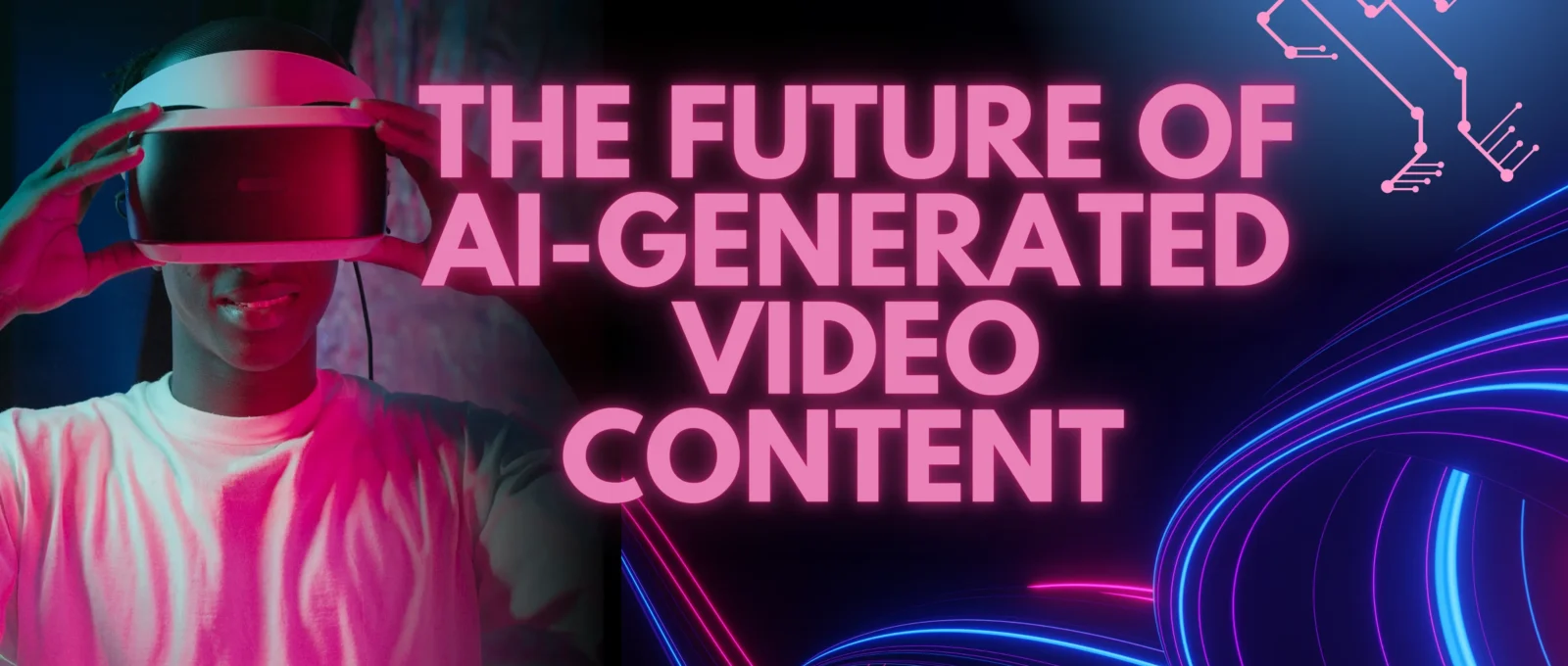Artificial intelligence is reshaping industries across the globe, and video production is no exception. From transforming traditional workflows to pushing the boundaries of creativity AI-generated video content is driving a new era of media innovation. But what exactly does this mean for creators businesses and audiences? This blog explores the technologies benefits challenges and future trends surrounding AI in video production offering a comprehensive guide to understanding its impact.
1. Introduction to AI-Generated Video Content
What is AI-generated video content?
AI-generated video content refers to videos created or significantly enhanced using artificial intelligence technologies. This includes automating video editing synthesizing visuals and even generating fully animated videos from scratch.
AI is revolutionizing the video production industry by streamlining processes that once required extensive manual input. It uses technologies like machine learning and deep learning to automate workflows improve personalization and create visually stunning outputs.
The Role of Machine Learning and Deep Learning
Machine learning (ML) enables AI to analyze massive amounts of video data identify patterns and generate new content. Deep learning takes this further using neural networks to process complex data layers resulting in innovations like synthetic media and hyper realistic animations.
2. Understanding AI in Video Production
2.1 What is AI Video Generation?
AI video generation involves using algorithms and automation to produce video content. Unlike traditional methods which require hands-on creativity AI can take text voice commands or data inputs and produce videos autonomously.
Difference between AI-Assisted Editing and Fully AI-Generated Content
While AI-assisted editing tools (like Adobe Premiere Pro’s AI features) help speed up tasks like color grading or transitions, fully AI-generated videos are entirely created by algorithms, often requiring minimal human intervention.
2 Technologies Behind AI-Generated Videos
Machine Learning and Deep Neural Networks refine video quality and automate tasks.
Natural Language Processing (NLP) translates text into video scripts and synchronizes audio with visuals.
Generative Adversarial Networks (GANs) create hyper-realistic synthetic visuals, a key technology behind deepfakes.
3. Benefits of AI-Generated Video Content
1. Cost-Effective and Scalable Video Production
By replacing traditional production steps with automation AI reduces overhead costs and makes high quality content affordable for businesses and creators. For instance tools like Synthesis allow companies to create polished videos without studio setups or professional actors.
Additionally video production becomes scalable. A global brand can use AI to quickly adapt video campaigns for multiple languages and cultures reaching diverse audiences with localized content.
2 Speed and Efficiency in Video Creation
AI-powered tools produce videos in real time cutting down on editing hours. Automated editing solutions, like AI driven color correction or background removal, make workflows faster and allow creators to focus on storytelling.
3.Personalization and Customization
AI doesn’t just create video content. It tailors it to individual audience preferences. A marketer can utilize AI to customize video ads based on user behavior patterns driving higher engagement and conversions.
4. AI-Powered Video Tools and Platforms
1. Leading AI Video Generators
Platforms like Synthesia, Pictory, DeepBrain AI, and Runway are making AI-generated video creation accessible even to non-professionals. These tools combine features like text-to-video functionality, AI avatars, and automatic scripting to simplify production.
2. AI in Video Editing and Post-Production
AI improves post-production workflows with features like auto synced voiceovers smart cropping, and content aware frame adjustments. For example AI video editors can adjust scene lighting or remove unwanted background noise without human input.
3. AI in Animation and CGI
Advanced AI tools are revolutionizing animation by generating lifelike movements and realistic textures. Award winning studios now utilize AI for faster CGI rendering making animation both cost efficient and visually captivating.
5. Ethical Concerns and Challenges of AI Video Creation
1. Deepfakes and Misinformation Risks
AI’s ability to create hyper realistic synthetic visuals has raised concerns about the misuse of deepfake technology. Such videos can spread misinformation, particularly when it comes to journalism or political content. This highlights the urgent need for ethical guidelines.
2. Copyright and Intellectual Property Issues
Ownership of AI-generated content is a gray area. If an algorithm produces a groundbreaking video, who holds the copyright? Resolving these questions is key to ensuring fair use of AI in creative industries.
3. The Future of Creativity in AI-Driven Videos
Will AI replace human creativity? Likely not. Instead we’re entering an era where AI serves as a collaborator allowing creators to push boundaries while focusing on storytelling and strategy.
6. Future Trends in AI-Generated Video Content
1.AI in Filmmaking and Entertainment
AI is starting to play a significant role in scriptwriting editing and even the direction of films. Virtual cinematography driven by AI could soon become a standard offering filmmakers new creative avenues.
2. Real-Time AI Video Editing and Live Streaming
Real-time editing capabilities are allowing creators to generate content on the fly opening up possibilities for live-streamed, AI-enhanced productions.
3. AI-Generated Interactive and Immersive Content
AI is merging with VR and AR technologies to create fully immersive experiences. Imagine a future where audiences explore AI-generated environments while interacting with personalized content in real time.
7. Conclusion
The future of AI-generated video content is bright yet complex. For businesses, creators, and marketers, AI offers unprecedented opportunities to innovate and scale their storytelling efforts. However navigating ethical concerns and legal challenges will be crucial as we integrate AI deeper into media production.
By staying informed and leveraging powerful AI tools the industry can ensure that this technology not only enhances efficiency but also enriches creativity. The road ahead is full of possibilities and the evolution of synthetic media promises to redefine how we engage with video content.





Leave a Comment